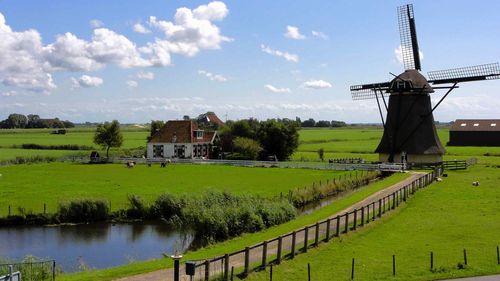Exploring Pakistani Culture: Traditional Customs and Practices
Pakistani culture is as diverse as its geography and history, with a fusion of Muslim, Hindu, and British colonial influences. The country boasts a rich cultural heritage, marked by vibrant customs and practices passed down through generations. This article delves into the traditional customs and practices intrinsic to Pakistani culture.
The Value of Family and Religion
Family holds a special place in Pakistani culture, with a greater emphasis on the collective rather than the individual. Blood relations are considered sacred and are given utmost respect. Elders are regarded with reverence, and younger members are expected to obey and seek their guidance. Similarly, religion plays a vital role in Pakistani culture, with Islam being the dominant faith. Mosques are considered the center of the community, and Muslims are called to prayer five times a day, reinforcing religious devotion.
Festivals and Celebrations
Pakistani culture is home to many festivals and celebrations, each brimming with their unique flair. Eid-ul-Fitr and Eid-ul-Adha are two of the most important religious festivals celebrated across the country. During these festivals, Muslims decorate their homes and prepare delicious traditional dishes, share meals with family, and exchange gifts. Apart from religious festivals, the country celebrates Independence Day on August 14th and Pakistan Day on March 23rd, showcasing unity and patriotism.
Art and Craftsmanship
Pakistan is home to a rich tradition of art and craftsmanship, with skills passed down through generations. Handmade jewelry, pottery, and textiles are some of the most popular art forms. Pakistani textiles, particularly its embroidered fabrics, are renowned globally. The intricate embroidery patterns, vibrant colors, and use of high-quality fabrics make Pakistani textiles some of the most sought-after in the world.
Cuisine and Hospitality
Pakistani cuisine is a testament to the country’s diversity, with a fusion of Indian, Mediterranean, and Central Asian influences. Some popular dishes include biryani, kebabs, and haleem. Food is an integral part of Pakistani hospitality, and guests are welcomed with open arms. Pakistani culture dictates that guests should be treated with utmost respect and offered food and drinks. The traditional Pakistani sweetmeats, such as barfi and ras malai, are a must-try when visiting the country.
Conclusion
In conclusion, exploring Pakistani culture reveals its richness and authenticity. Family, religion, festivals, art, and cuisine are just a few of the many aspects that define Pakistani culture. Its vibrant customs and practices are a testament to the country’s unity in diversity and are a source of pride for its people. Through its traditions, Pakistan proudly showcases its unique identity to the world.
(Note: Do you have knowledge or insights to share? Unlock new opportunities and expand your reach by joining our authors team. Click Registration to join us and share your expertise with our readers.)
Speech tips:
Please note that any statements involving politics will not be approved.
